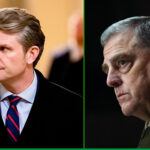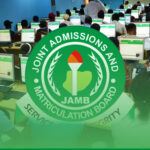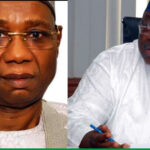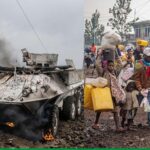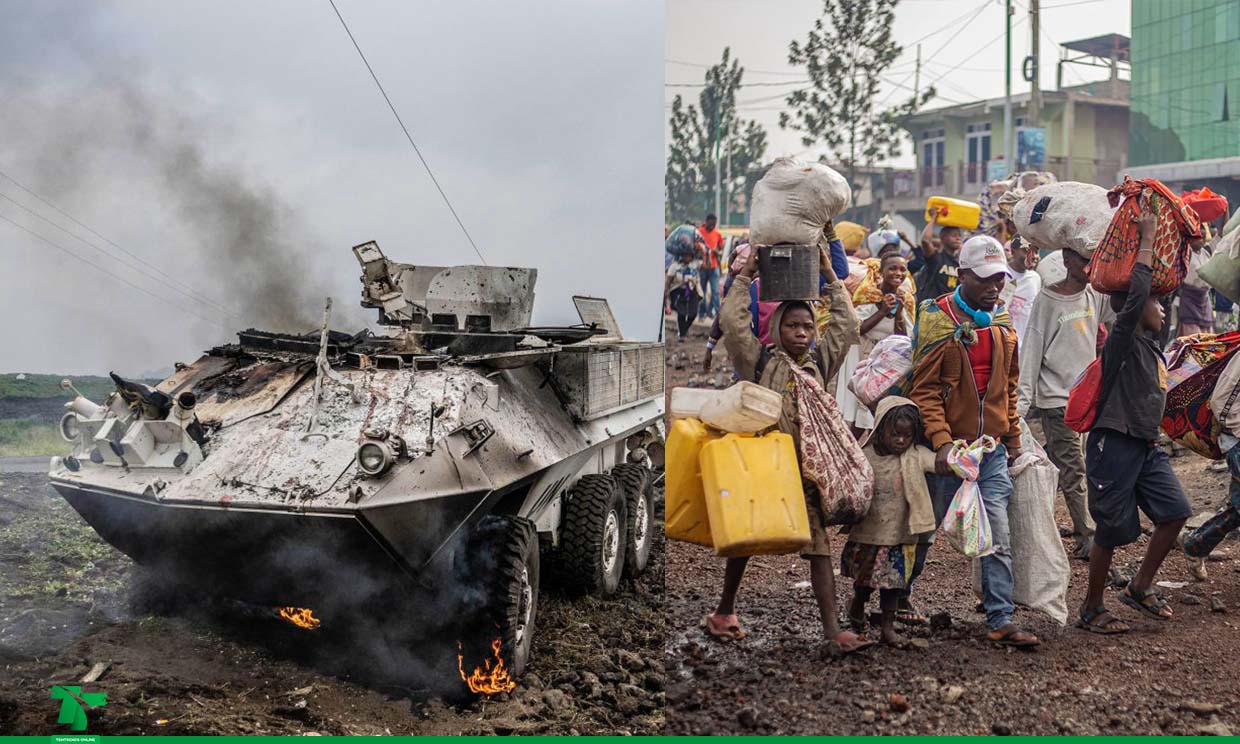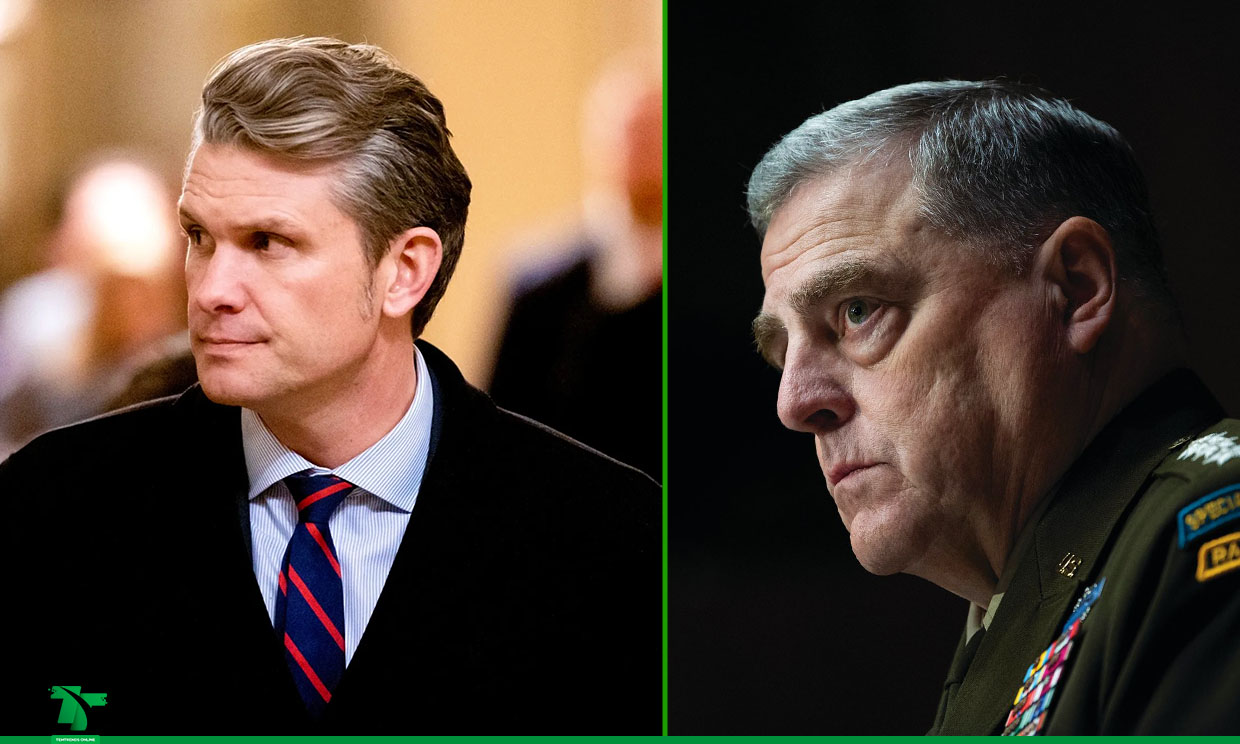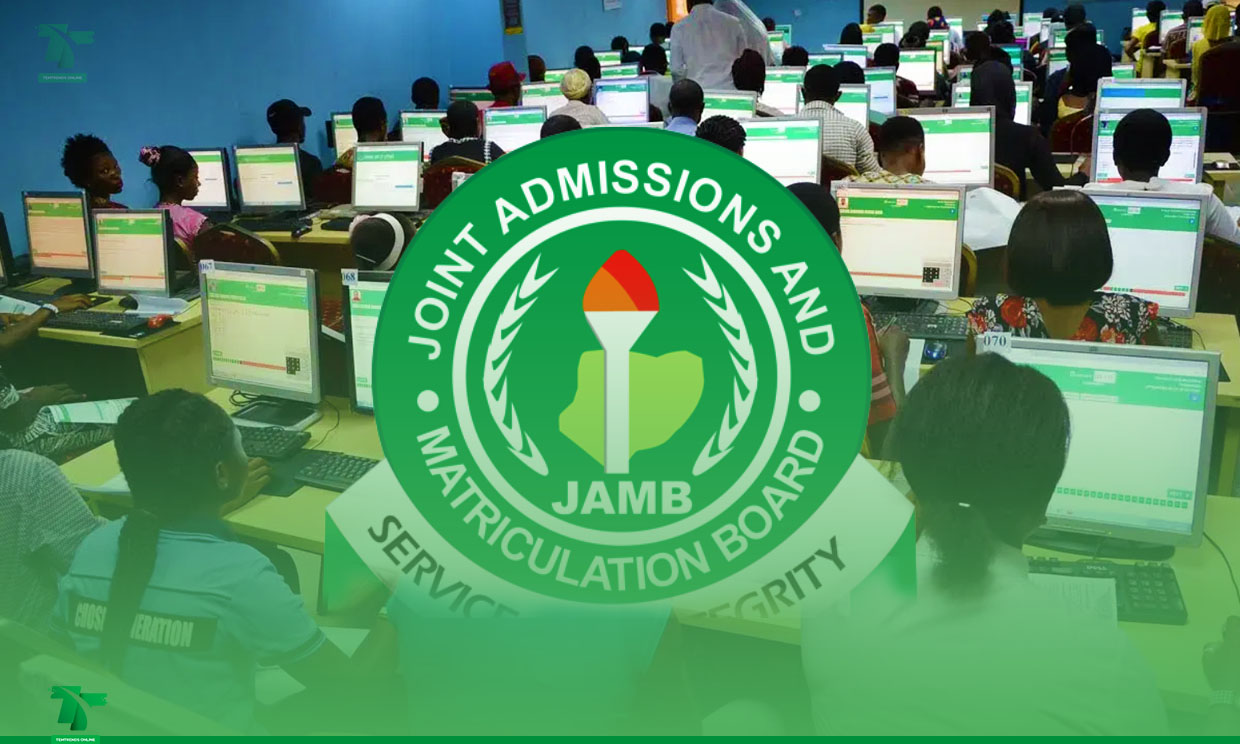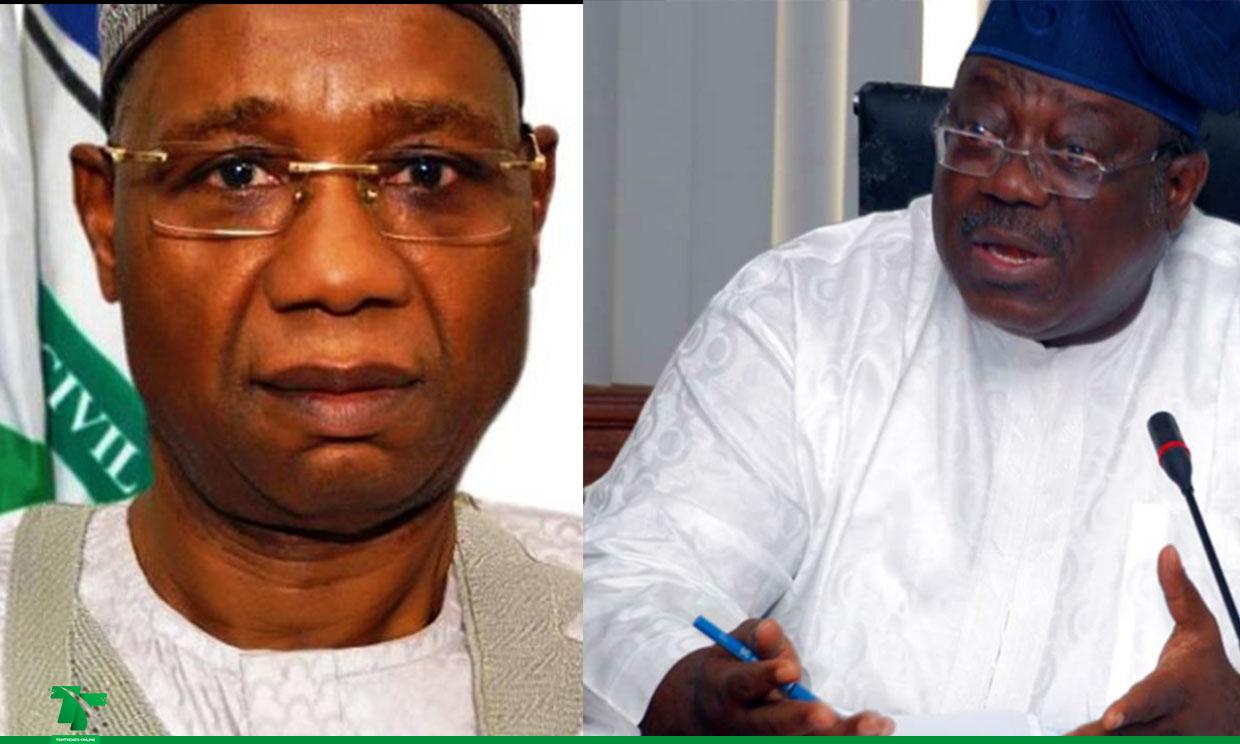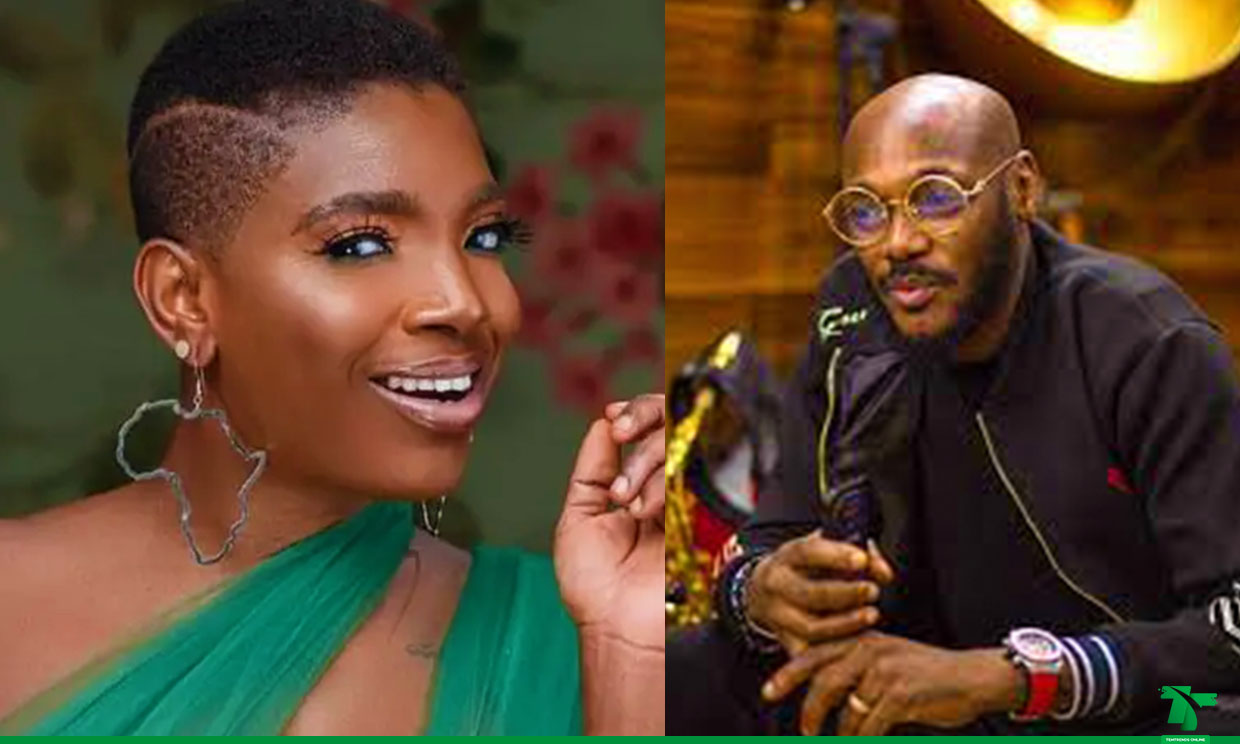The Democratic Republic of the Congo (DRC) is once again at the center of global attention following the dramatic capture of Goma, a key city in the country’s eastern region, by the M23 rebel group. This development has triggered fears of further escalation in a region already plagued by decades of conflict, displacement, and humanitarian crises. Here’s a detailed look at the situation and its broader implications.
Who Are the M23 Rebels?
The M23 rebel group derives its name from a peace agreement signed on March 23, 2009, between the Congolese government and a previous rebel faction. Comprised largely of ethnic Tutsis, M23 accuses the Congolese government of failing to uphold its commitments under the 2009 deal. These commitments included integrating rebel fighters into the national army and addressing grievances related to discrimination and resource distribution.
Since re-emerging in 2022, M23 has launched a series of offensives, seizing control of key territories in eastern DRC. The group has been accused of committing atrocities, including the forced displacement of civilians, looting, and attacks on villages. Their resurgence has heightened tensions in the Great Lakes region, with neighboring Rwanda and Uganda being accused of supporting the group—an allegation both nations have repeatedly denied.
The Capture of Goma
On January 27, 2025, M23 rebels claimed to have taken control of Goma, the largest city in eastern DRC. Goma holds immense strategic and economic significance, serving as a hub for trade and a gateway to the region’s vast mineral wealth. The capture of the city represents a significant victory for the rebels and a severe blow to the Congolese government.
Eyewitness accounts describe chaos and fear as rebels entered the city. Thousands of residents fled their homes, seeking safety in nearby towns or across the border in Rwanda. Businesses, schools, and government offices have been shut down, leaving Goma in a state of paralysis.
As M23 fighters took control of strategic locations across Goma, they swiftly moved to establish a presence in key administrative offices and critical infrastructure points. Reports indicate that rebel forces have set up checkpoints across the city, restricting movement and enforcing their own rule. The Congolese military, caught off guard by the speed of the offensive, initially retreated to the outskirts of the city but has since begun reorganizing for a potential counteroffensive.
Meanwhile, in Kinshasa, President Félix Tshisekedi held an emergency security meeting, vowing that the government would not allow Goma to remain under rebel control. “We will reclaim our land and defend our people,” he declared, urging international partners to support the DRC in its fight against armed groups. However, with M23 deeply entrenched and well-equipped, any military response risks further escalating the conflict, especially if external actors become involved.
A ‘Declaration of War’
The situation has been described as a “declaration of war” by Congolese officials. The government has accused Rwanda of directly supporting M23’s offensive, a claim that has further strained already fragile diplomatic ties between the two countries. Both nations have since withdrawn their diplomats from each other’s capitals, signaling a complete breakdown in relations.
Adding to the tensions, UN sources reported exchanges of fire between Congolese and Rwandan troops near the border, raising fears of a wider regional conflict. The United Nations Security Council has called for an immediate cessation of hostilities and urged all parties to respect international law.
Experts warn that the growing hostility between the DRC and Rwanda could push the crisis beyond a localized conflict. With Rwanda and Uganda repeatedly accused of backing M23, there are fears that the situation might escalate into direct clashes between national armies. A full-scale war between the DRC and Rwanda would have disastrous consequences, not just for the Great Lakes region but for Africa as a whole.
International mediators, including representatives from the African Union (AU) and the United Nations, have urged both governments to step back from the brink of war. However, with tensions at an all-time high and public anger rising in both countries, a diplomatic resolution remains uncertain. If Rwanda is drawn further into the conflict, it could also prompt a response from other regional powers, potentially dragging East Africa into a prolonged and devastating war.
The Humanitarian Crisis
The capture of Goma has exacerbated an already dire humanitarian situation in eastern DRC. The region is home to one of the world’s largest internally displaced populations, with nearly seven million people forced to flee their homes due to ongoing violence. The recent fighting has displaced thousands more, overwhelming humanitarian agencies struggling to provide food, shelter, and medical care.
Local residents have described harrowing journeys to escape the violence. Many have taken refuge in overcrowded camps, where access to clean water, sanitation, and healthcare is limited. The influx of displaced people has also put a strain on neighboring countries, particularly Rwanda, which has seen a surge in refugees crossing its border.
Humanitarian organizations operating in eastern DRC have sounded the alarm over deteriorating conditions. The already overwhelmed UN refugee agency (UNHCR) reports that makeshift camps around Goma are reaching full capacity, with families crammed into overcrowded shelters lacking basic necessities. Food supplies are dwindling, and waterborne diseases such as cholera are a growing concern.
The situation is equally dire across the border in Rwanda, where authorities are struggling to accommodate the influx of Congolese refugees. Some Rwandan officials have warned that the country may not have the resources to sustain large numbers of arrivals, leading to concerns that border restrictions may be tightened. Human rights organizations have urged the international community to increase funding for emergency relief efforts, warning that without swift intervention, thousands of lives could be at risk.
International Reactions
The international community has expressed deep concern over the escalating crisis. The United Nations has condemned the actions of the M23 rebels and called for their immediate withdrawal from Goma. UN peacekeepers stationed in the region have been unable to prevent the group’s advances, raising questions about the effectiveness of the mission.
France has taken a particularly strong stance, condemning Rwanda’s alleged support for M23. The European Union and the African Union have also called for urgent dialogue to address the crisis. Meanwhile, the United States has urged all parties to respect human rights and avoid actions that could further destabilize the region.
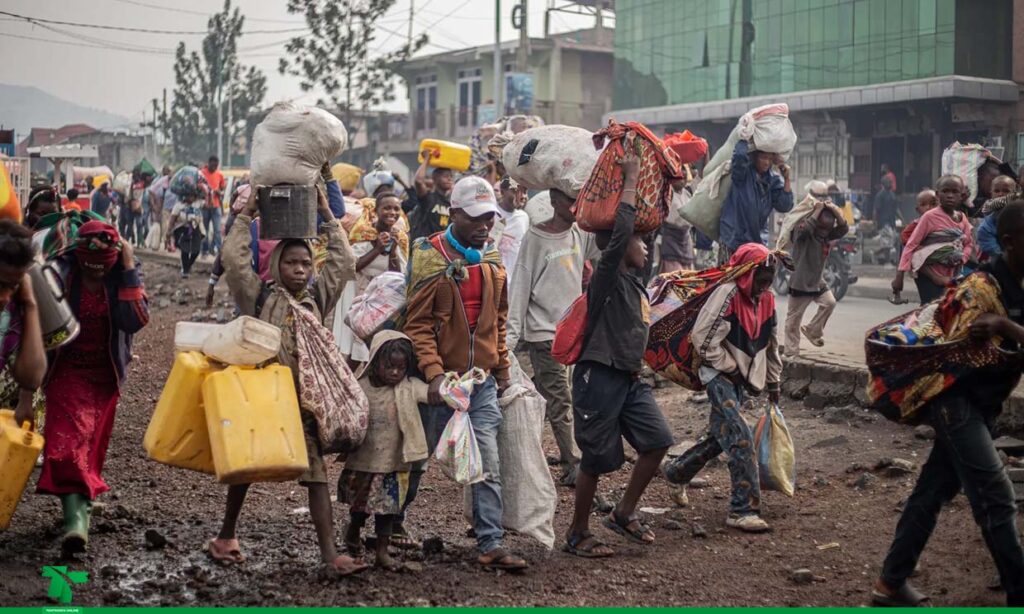
The United Nations Security Council has convened emergency meetings to discuss the crisis, with some member states calling for stronger intervention measures. While the UN’s peacekeeping force, MONUSCO, has faced criticism for its limited impact, there are growing calls for the mission to receive additional resources or even a renewed mandate to take more proactive measures against armed groups.
Some Western governments, including the United States and France, are considering targeted sanctions against individuals and entities accused of fueling the conflict. The European Union has also hinted at the possibility of expanding existing sanctions on M23 leaders, as well as any foreign actors found to be aiding the rebels. However, analysts warn that diplomatic pressure alone may not be enough to deter further violence unless it is accompanied by meaningful peace efforts.
Underlying Causes of the Conflict
The conflict in eastern DRC is deeply rooted in historical, political, and economic factors. The region’s vast mineral wealth, including gold, diamonds, and coltan (a key component in electronics), has made it a focal point for armed groups seeking to exploit these resources. Weak governance, corruption, and ethnic tensions have further fueled the violence.
The involvement of neighboring countries has also played a significant role. Rwanda and Uganda have been accused of supporting rebel groups to secure access to the DRC’s resources. While both nations deny these allegations, their actions have drawn criticism from the international community.
Beyond armed groups and regional tensions, economic interests continue to play a central role in fueling instability. Eastern DRC’s mineral wealth—particularly gold, diamonds, and coltan—remains a key driver of the conflict, with various actors seeking to control these lucrative resources. Many of these minerals are smuggled across borders and find their way into global supply chains, raising ethical concerns about the role of international businesses in sustaining the war.
Efforts to regulate the trade in conflict minerals have seen limited success, as corruption and weak enforcement allow illicit mining operations to thrive. Some multinational corporations have pledged to source minerals responsibly, but transparency remains a challenge. Until stronger mechanisms are put in place to cut off funding for armed groups through illegal mineral sales, the cycle of violence in eastern DRC is unlikely to end.
The Role of the International Community
The ongoing crisis in eastern DRC highlights the need for a coordinated international response. The United Nations has a significant presence in the region, with over 16,000 peacekeepers deployed under the MONUSCO mission. However, the mission has faced criticism for its inability to prevent rebel advances and protect civilians.
Regional organizations, such as the African Union and the East African Community, have also been urged to take a more active role in mediating the conflict. Diplomatic efforts must focus on addressing the root causes of the violence, including resource exploitation, ethnic tensions, and weak governance.
Looking Ahead
The capture of Goma by M23 rebels marks a critical juncture in the DRC’s ongoing conflict. The situation has highlighted the complexities of the crisis, from local grievances to regional power dynamics. Without immediate action, the violence risks spiraling into a full-scale war, with devastating consequences for the people of eastern DRC and the wider Great Lakes region.
For the Congolese government, reclaiming Goma will be a top priority. However, military action alone is unlikely to bring lasting peace. Addressing the underlying causes of the conflict, ensuring accountability for human rights abuses, and promoting inclusive governance will be essential for achieving stability.
Despite the grim outlook, there are ongoing efforts to bring about a peaceful resolution. Regional leaders, including Kenya’s President William Ruto and South Africa’s Cyril Ramaphosa, have stepped up diplomatic engagements, urging both the DRC and Rwanda to commit to dialogue. The East African Community (EAC) has proposed a new peace summit, aiming to revive stalled negotiations between the Congolese government and M23 leaders.
Analysts argue that any lasting solution must involve deeper regional cooperation, with mechanisms to address cross-border security concerns and economic grievances. Some have suggested the creation of a joint security force under the African Union to combat armed groups in the region, but such proposals face political and logistical challenges. For now, the key question remains whether regional and international actors can work together to de-escalate tensions before the crisis spirals out of control.
Conclusion
The M23 rebellion and the capture of Goma have brought the Democratic Republic of the Congo to a critical crossroads. The international community must act swiftly to prevent further escalation and support efforts to address the root causes of the conflict. For the people of eastern DRC, the hope for peace remains a distant but urgent goal. In the meantime, the region’s humanitarian needs must be met with immediate and sustained assistance to alleviate the suffering of millions caught in the crossfire.
“The cries of the innocent must not be silenced by the guns of conflict. Peace is not just a wish; it is a necessity.”
To stay updated on global events and issues shaping our world, check out our latest news update.
Share:

